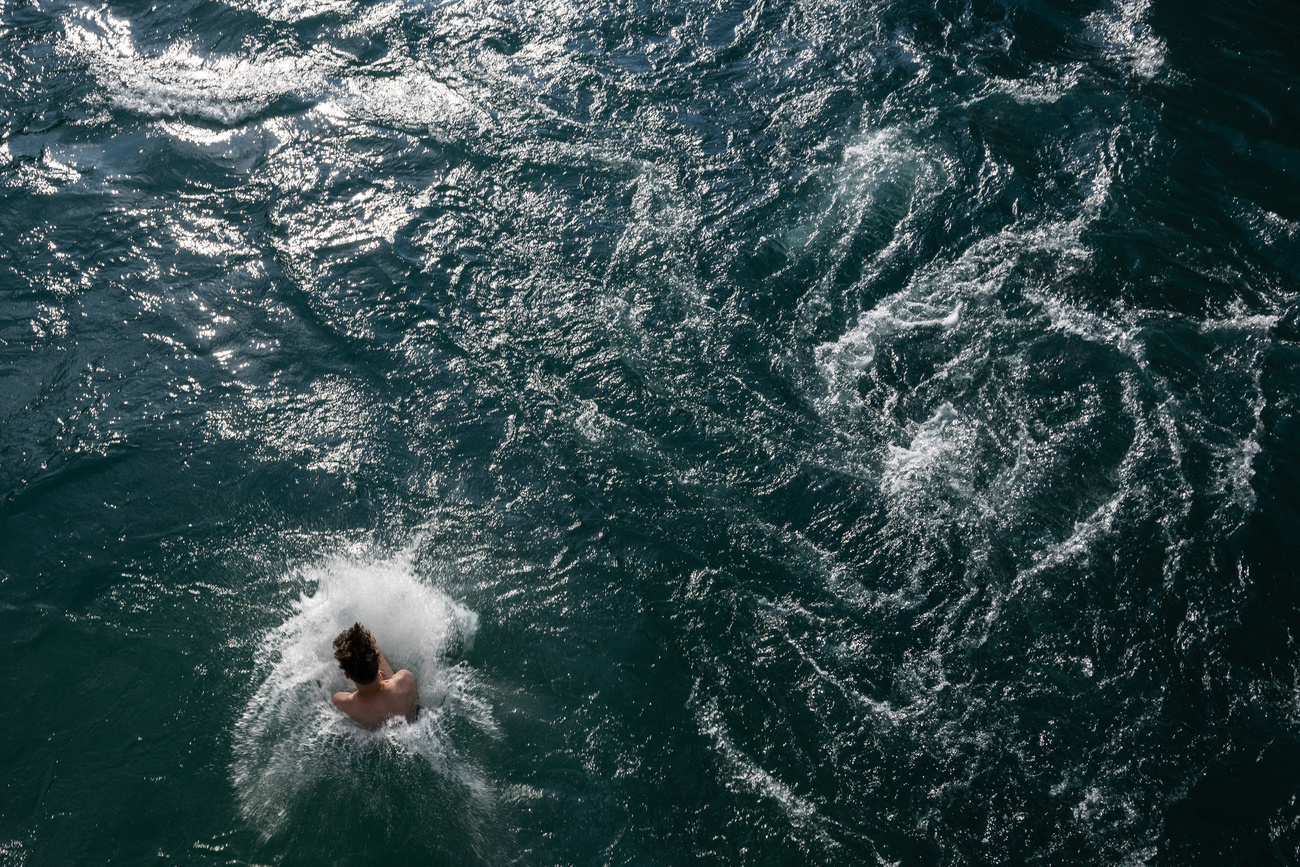
Switzerland records rise in drownings in 2022

Sixty people have drowned in Switzerland’s lakes and rivers so far this year, surpassing the annual average of 46.
Between January and September 15, 60 people died in fatal water accidents, the Swiss Lifesaving Society (SSS) saidExternal link on October 28. This compares with 36 drownings in 2021.
Around 80% of this year’s fatalities were men. Over 60% of the drownings occurred on lakes and almost 40% in rivers.
“Continued high temperatures this year have certainly drawn more people to the lake shores and to the waters, increasing the likelihood of drownings,” the SSS said in a statement.

More
Men at higher risk of drowning in Swiss rivers
This year around 20 victims were aged between 70 and 85. The society said that while the causes of death cannot be clearly determined, it is assumed the victims “underestimated the dangers”.
This year the death of Emmeril Mumtadz, the son of a top Indonesian politician who drowned in the river Aare in Bern in May, sparked international dismay and criticism against river swimming in Switzerland.
In 2019, more than 236,000 people drowned worldwide which makes death in water one of the biggest public health problems in the world. Drowning is one of the top ten causes of death for people aged one to 24 across the globe.

More
The rise of urban swimming in Swiss cities

In compliance with the JTI standards
More: SWI swissinfo.ch certified by the Journalism Trust Initiative
















![The four-metre-long painting "Sonntag der Bergbauern" [Sunday of the Mountain Farmers, 1923-24/26] had to be removed by a crane from the German Chancellery in Berlin for the exhibition in Bern.](https://www.swissinfo.ch/content/wp-content/uploads/sites/13/2025/12/01_Pressebild_KirchnerxKirchner.jpg?ver=bb19e376)














You can find an overview of ongoing debates with our journalists here . Please join us!
If you want to start a conversation about a topic raised in this article or want to report factual errors, email us at english@swissinfo.ch.